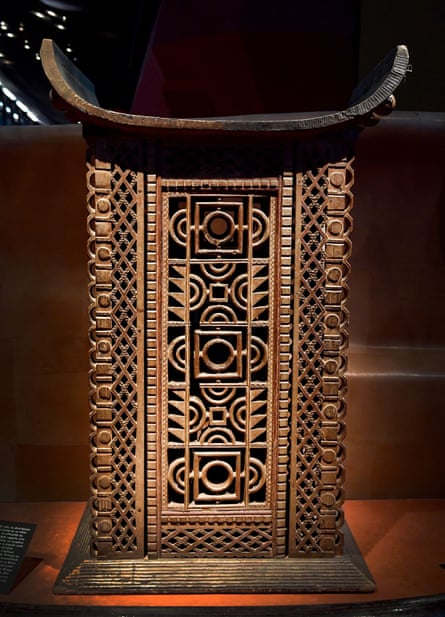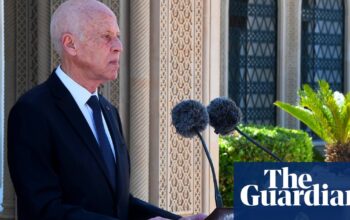A French-Senegalese filmmaker who traveled with a collection of looted treasures from Europe to Africa in the 21st century has expressed disappointment over the lack of further action, causing a lingering sense of humiliation. This marks the first significant return of such artifacts to their country of origin.
Mati Diop’s film, Dahomey, made its debut at the Berlin Film Festival on Sunday. The director follows the 2021 voyage of 26 stolen artifacts from the royal palace of Dahomey, located in present-day Benin, which were taken by the French commander of Senegal in 1890.
Three years prior to the return, French president Emmanuel Macron announced that the Musée du Quai Branly in Paris would be returning items, marking the first instance of a former colonial power in Africa making restitution. This sparked a movement across Europe as governments began to investigate their own national collections and, in some cases, take action to return certain pieces.

Diop’s film not only records the joyous celebrations marking the objects’ arrival in Benin’s economic capital of Cotonou, but also shows young people debating the moment’s significance, given that thousands more artefacts remain in European collections. “Restituting 26 works out of 7,000 is an insult,” one student says.
During a press conference following the premiere of the film, Diop expressed that while the 26 works were commendable, they were not sufficient. It is evident that the number pales in comparison to the 7,000 works currently held in these museums, and Diop finds this to be demeaning.
The collection at Musée du Quai Branly, the largest ethnological museum in France, includes 3,157 objects from Benin. There may be additional items in smaller museums and private collections.
The objects that were returned, such as a tall wooden throne and life-sized statues of animals, were transported from Cotonou airport to the presidential palace in trucks decorated with large pictures of the artifacts.
Diop suggested considering the staging of this process, noting that there is a political motive but also potential for alternative responses involving artists, filmmakers, and students.
The director, who received critical acclaim for her first full-length film Atlantics in 2019 at Cannes and had it released on Netflix, explained that her initial idea for Dahomey was to make it a fictional movie because she didn’t anticipate the treasures being physically moved in such a short amount of time.
She expressed that she believed it would happen in 20 to 30 years. She was unsure if she would see it in her lifetime, which motivated her to create a fictional film.
The process of returning more colonial artifacts to Benin has been delayed in recent months due to a law in the French parliament that is preventing their restitution.
Avoid the newsletter advertisement.
after newsletter promotion
French historian Bénédicte Savoy, who worked on the 2018 report that prompted Macron’s declaration, stated that the return of the objects is a matter of when, not if. She expressed confidence that it will happen as it is a natural progression in history that cannot be halted.
No matter what decisions are made by Emmanuel Macron or the French government, events will carry on. Diop’s movie illustrates how a culture that embraces its roots becomes more powerful and forward-thinking.
The movie depicts the impact of the Dahomey treasures on the discussion of Benin’s national identity. Habib Ahandessi, who is featured in the film, stated at a press conference in Berlin that many were unaware of the pillaging of these works. The announcement of their return sparked a significant debate.
“We were previously taught that our ancestors were carefree,” he stated. “However, we have now discovered that our ancestors were truly brilliant, and their artistic creations were remarkable.”
Source: theguardian.com


